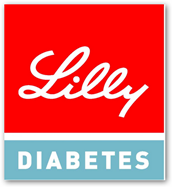Trulicity is manufactured by Indianapolis-based Eli Lilly and Company and is not for treatment of diabetes one.  The drug is a weekly injection and part of a new class of drugs that induce the pancreas to create extra insulin after meals.
The drug is a weekly injection and part of a new class of drugs that induce the pancreas to create extra insulin after meals.
There will be a boxed warning that rats tested with the drug had cases of thyroid cancer and post studies will be required as listed below. BD
The U.S. Food and Drug Administration today approved Trulicity (dulaglutide), a once-weekly subcutaneous injection to improve glycemic control (blood sugar levels), along with diet and exercise, in adults with type 2 diabetes.
Type 2 diabetes affects about 26 million people and accounts for more than 90 percent of diabetes cases diagnosed in the United States. Over time, high blood sugar levels can increase the risk for serious complications, including heart disease, blindness, and nerve and kidney damage.
"Type 2 diabetes is a serious chronic condition that causes blood glucose levels to rise higher than normal,” said Mary Parks, M.D., deputy director of the Office of Drug Evaluation II in the FDA’s Center for Drug Evaluation and Research. “Trulicity is a new treatment option, which can be used alone or added to existing treatment regimens to control blood sugar levels in the overall management of type 2 diabetes.”
Trulicity has been studied as a stand-alone therapy and in combination with other type 2 diabetes therapies, including metformin, sulfonylurea, thiazolidinedione, and prandial insulin. Trulicity should not be used to treat people with type 1 diabetes; those who have increased ketones in their blood or urine (diabetic ketoacidosis); those with severe stomach or intestinal problems; or as first-line therapy for patients who cannot be managed with diet and exercise.
The FDA is requiring the following post-marketing studies for Trulicity:
- a clinical trial to evaluate dosing, efficacy, and safety in pediatric patients;
- a study to assess potential effects on sexual maturation, reproduction, and CNS development and function in immature rats;
- a medullary thyroid carcinoma (MTC) case registry of at least 15 years duration to identify any increase in MTC incidence related to Trulicity;
- a clinical trial comparing Trulicity with insulin glargine on glycemic control in patients with type 2 diabetes and moderate or severe renal impairment; and
- a cardiovascular outcomes trial to evaluate the cardiovascular risk of Trulicity in patients with high baseline risk of cardiovascular disease.
The FDA approved Trulicity with a Risk Evaluation and Mitigation Strategy (REMS), which consists of a communication plan to inform health care professionals about the serious risks associated with Trulicity.
http://www.fda.gov/NewsEvents/Newsroom/PressAnnouncements/ucm415180.htm



0 comments :
Post a Comment